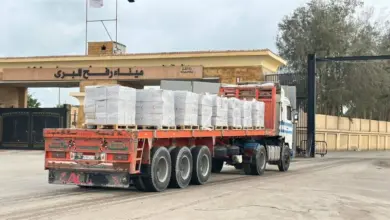Turkish Prime Minister Recep Tayyip Erdogan arrives in Egypt tonight on the first leg of a regional tour that will include Tunisia and Libya. Erdogan has also expressed a desire to visit Gaza as part of the trip to show solidarity with the enclave’s 1.5 million residents living under blockade since 2007.
Analysts say the visit would challenge Israel’s blockade of the Hamas-ruled territory and further inflame already tense relations between Turkey and Israel. But that's not all. It would also likely embarrass Egyptian authorities by drawing attention to Egypt and Turkey's divergent reactions to their respective diplomatic crises with Israel: Turkey's prime minister will be visiting the same territory that its citizens were killed trying to reach in a flotilla last year, while Egypt's government continues the Gaza blockade to this day. Six Egyptian border guards were killed near the Egypt-Israel border last month by Israeli forces chasing militants who had attacked a bus near Eilat, leaving eight Israelis dead.
Turkish President Abdullah Gul’s senior advisor Ersat Hurmuzlu said in Istanbul Tuesday that Turkey would consult with Egyptian authorities about Erdogan’s visit to the besieged territory. He told an Egyptian media delegation visiting the country ahead of Erdogan's visit that Egyptian authorities ought to listen to the demands of their people and take firm action against Israel. The comments suggest that Erdogan may be seeking an alliance to increase Israel's regional isolation.
Egypt’s ambassador to Turkey Abdel Rahman Salah meanwhile said it was highly unlikely that Egyptian authorities would give Erdogan the green light to enter Gaza through the Rafah border crossing. He said he suspects the authorities would not wish "to pour fuel over an already burning fire."
Meanwhile Turkey’s relations with Israel have been jittery. Earlier this month Turkey expelled the Israeli ambassador and cut off military ties with Israel. The move came days after a UN report was released acknowledging that Israel had used excessive force in a raid on a Gaza-bound flotilla in May 2010 that killed nine Turkish activists. The report also blamed Turkey and the flotilla organizers for the deaths.
"We waited fifteen months for an Israeli apology, but it never came," Turkish Foreign Ministry Spokesman Selcuk Unal told the Egyptian media team in Ankara on Friday. "Throughout this period, we continued to consult with Israeli authorities and made our demands clear. But so far Israel has chosen to ignore our demands."
Turkish demands for an official apology from Israel and compensation for the families of the raid's victims have not been met. Israel has, however, downplayed the diplomatic standoff, saying relations with Turkey are strong enough to weather the current differences.
Turkish officials do not agree, describing the standoff as a '"serious crisis." Hurmuzlu said Turkey was even considering cutting off trade ties with the Jewish state as a possible punitive measure.
Meanwhile, anti-Israeli sentiment today is at one of its highest levels since the Camp David Accords were signed in 1979. Since the border incident, hundreds of Egyptian protesters have staged a series of fiery rallies in front of the Israeli Embassy building in Giza, demanding the immediate expulsion of the Israeli ambassador and an official apology for the deaths of the Egyptian troops.
The latest such sit-in this weekend turned bloody after at least three protesters were killed and more than 1000 were injured in clashes with security forces. A group of around 30 protesters managed to break into the embassy building and were seen throwing Hebrew documents from a balcony. Meanwhile angry crowds used hammers and iron bars to smash a security wall that had been built to shield the embassy. The Israeli flag was again pulled down last Friday in a repeat incident of a Ramadan sit-in at which Egyptian activist Ahmed al-Shehat – now dubbed Flagman – climbed 15 floors to remove the Israeli flag.
With calls growing louder in Egypt for the government to scrap its historic peace treaty with Israel, it is almost certain that the Turkish premier will receive a hero's welcome when he lands in Egypt. Many revolutionaries in Cairo see him as an assertive and iconic leader, capable of helping Egyptians – and Arabs – win back their lost dignity after decades of living under failed Arab regimes.




